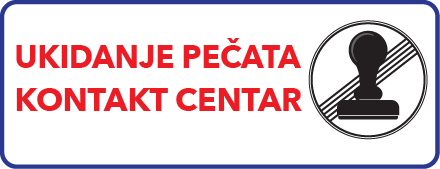Literature
The literature of Slovaks from Vojvodina
With the movement of the Slovaks to the so called Low land not only peasants and craftsmen were looking for a better environment for life but also teachers and priests were those who left their homeland with a hope for a better place to live. These few educated people were those who laid the foundations for todays culture and literature of Slovaks living in Vojvodina. The first creation of literature was hardly satisfying nowadays criteria for the literature, but on the other hand even the smallest number of those literature works which were mostly some kind of imitation of prose and poetry is representing the beginning of literary work of Slovaks from Vojvodina.
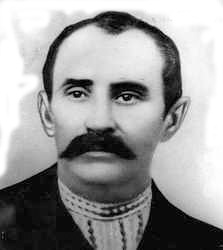 |
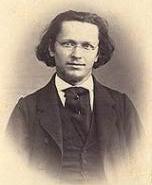 |
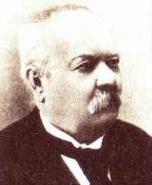 |
In the second half of the 18th continuing trough the 19th Century there was a small number of texts which would satisfy the basic esthetic's criteria. When it comes to poetry the names which were important in that time were Juraj Rybay (1754-1812), Juraj Rohoň (1773-1831), Matej Ambrózy (1797-1869), Michal Godra (1801-1861), Jozef Podhradský (1823-1915). The one who kept writing was Jozef Podhradský. Very similar situation was also with the prose. The names of Slovak prosaic writers from Vojvodina were Félix Kutlík (1843-1890), Albert Martiš (1855-1918) and Gustav Maršal Petrovský (1862-1916).
The situation begin to change when Austro Hungary monarchy breakup happened which made Slovaks in Vojvodina to realize their cultural heritage so they started to found institutions which have been and still are of a great importance for Vojvodina Slovaks. There were established Slovak Matica, book print, magazines, etc.
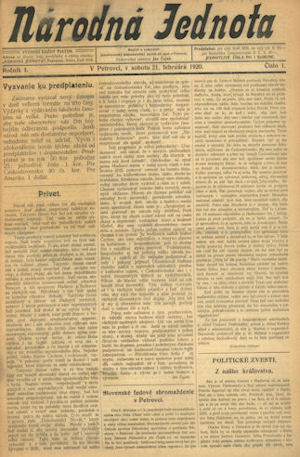 |
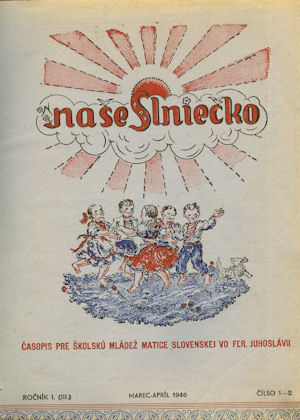 |
Despite the effort to maintain the literary work it still was on a low level of quality but many names were known by their writings like Andrej Sirácky (1900-1988), Martin Toman Banátsky (1899-1977), Mariena Czoczeková-Eichardtová (1892-1972) and many other authors who were not so well known. But when it comes to prose the situation is a bit different. The popular name in this field of literary work is a teacher from a Slovak town Petrovec Ján Čajak (1863-1944) who has written a novel Rodinu Rovesných (1909) his writing had a big influence on the Vojvodina's Slovak writers who became his followers like Ján Čajak jr., Vladimír Konštantín Hurban and on the whole prose work of the Slovaks from Vojvodina in the 20th Century.
The most significant breakthrough in the literary work of Vojvodina Slovaks mostly in poetry was in the end of 30'es and 40'es of the 20th Century. The personalitie who are creditable for that significant change are Juraj Mučaji (1919-1945) and Paľo Bohuš (1921-1997). Juraj Mučaji died young and has written poetry collection Rozvravené srdce,1942. Where his writing work stopped Paľo Bohuš continued and his first published poetry collection was called Život a brázdy (1943). Trough time he has written many poetry collections like Hviezdne proso (1972), Časom dôjdeme (1974), Nikam a späť (1989) .
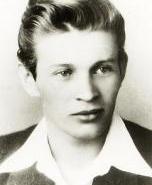 |
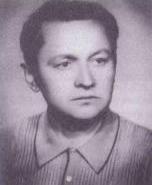 |
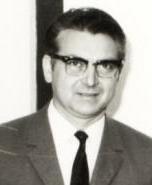 |
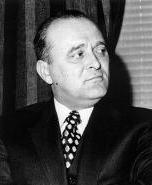 |
The first poetry collection which was published after the world war two was miscellany of young poets and it was called Do nových dní (1950). This was the period when many other young writers like Pavel Mučaji (1929), Bojujúce srdce (1952), and Andrej Ferko (1925) Okovaná krv (1954).
Of a great significance was also the poetry work of Ján Labáth (1926) Slnečné hodiny (1958), Jesenná krajina (1970), Michal Babinka (1927-1974). Thanks to their work younger writers in the 60's have been doing their poetry based on Labáth, Babinka and Bohuš poetry. Viera Benokvá (1939) a Vojvodina's Slovak poet started with her writing by publishing Májový ošiaľ (1966). She was inspired by the poetic sensationalism.
When it comes to the developmental aspect, the most meaningful in this period was a writer Víťazoslav Hronec (1944) who with his poetry has connected the Vojvodina's Slovaks poetry to the contemporary world literary tendencies his important poetry collection is Hranica (1981).
The oldest poet from this generation was Miroslav Demák (1952) who with his work was still in classical poetry. Others who started to write in the second half of the 70's are Miroslav Dudok (1952) who has for the first time brought the city sensitivity of unpoetical expression Ruberoid (1984), later he used irony and other postmodern techniques. Zlatko Benka (1951) has built for him self a original poetic speaking practically totally independent of his predecessors Oceán (1984; Íl 2001). Michal Ďuga (1951) is a poet who analyses existential situations in the context of universal and mythological models Spiace motýle (1976) and he wrote many other works. Jozef Klátik (1949) and Jaroslav Supek (1952) are experimental poets who only with one part has a classical context.
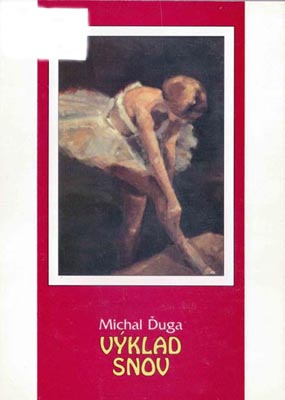 |
In the last decade of the last Century into the Slovak literature has risen a new generation of poets called The X generation. Those poets are Martin Prebudila (1960) whose poetry is significant by his revolt and sensitiveness Horeznačky (1992) Namiesto kodicilu (2001). Ján Salčák (1961), has a very similar approach to his poetry Pohnuté svety (1988). Ladislav Čáni (1961) is more subjective poet, his writings are ironic and sarcastic Zánik chrámu (1997) Kameň na dlani (2005). Katarína Hricová (1967) is also a part of the generation X which can be noticeable in her poetry which is full tragic of the human lot Motýľ v klietke (2004) Voľným pádom (1997).
When it comes to prose of Vojvodina's Slovaks in the second half of the 20th Century it developed in two directions. On one side there was realistic rural story which was canonized by Ján Čajak and later on Ján Čajak jr. This narrative model followed Janko Čeman (1922-1987), Miroslav Krivák (1931-2002), Ján Kopčok (1929-1993), Pavel Čáni (1928-1999) and partly Pavel Grňa (1937).
There were many authors who showed in the 50's and 60's many different prosaic innovations. Their names are Ján Labáth, Juraj Tušiak and Víťazoslav Hronec. The younger generations also followed this modern model it was shown firstly in the stories of Miroslav Demák and Michal Ďuga and later on in the writings of Zlatko Benka, also in parodies of Zoroslav Jesenského and in the unique picture of the world of the author Mišo Smišek.
The tendency of evolving from modern to post modern prose was visible in the writing works of the authors Tomáša Čelovského, Miroslava Šipického, Jaroslava Supeka. which were published in newspapers.
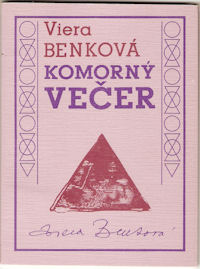 |
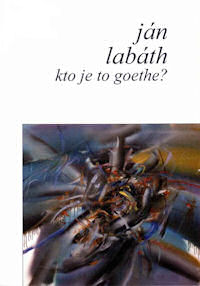 |
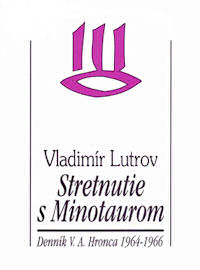 |
In the second half of the 20th Century in the literature of Vojvodina's Slovaks there has come to development of a literature for the youngs and children. The most important names in this field of literature history are Michal Babinka (Ako rástol Igorko, 1970), Pavel Mučaji (Pavúčik hrdina, 1958), Pavel Grňa (Prázdniny v poli, 1975), Juraj Tušiak (Za priehršť radosti, 1959; Maximilián v meste, 1971), Miroslav Demák (O troch umelcoch, 1977), Zoroslav Spevák (Mastené, paprené, solené..., 1987), Tomáš Čelovský (Rád chodím do školy, 1984), Mária Kotvášová Jonášová (Mať pätnásť je také ťažké, alebo Striptíz, 2007), Martin Prebudila (Pozemšťan Milan a Vincent bez ucha, 2007) and others.
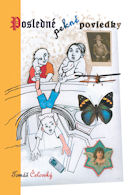 |
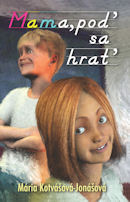 |
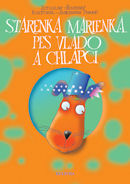 |
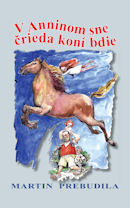 |
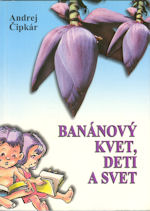 |
Adam Svetljik




